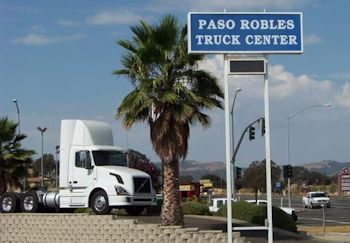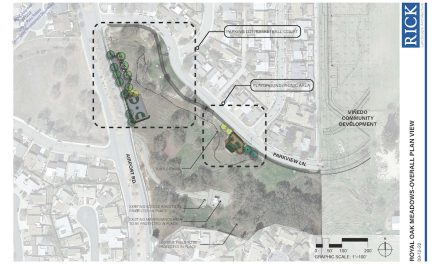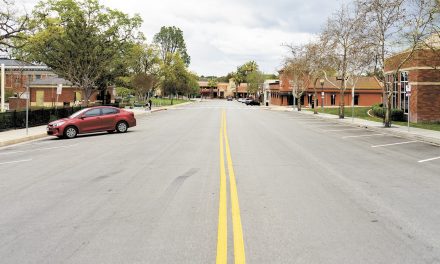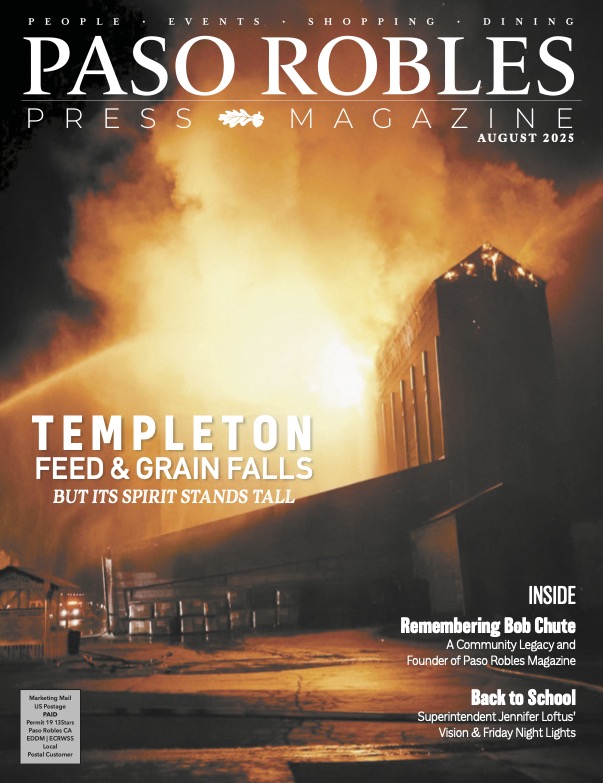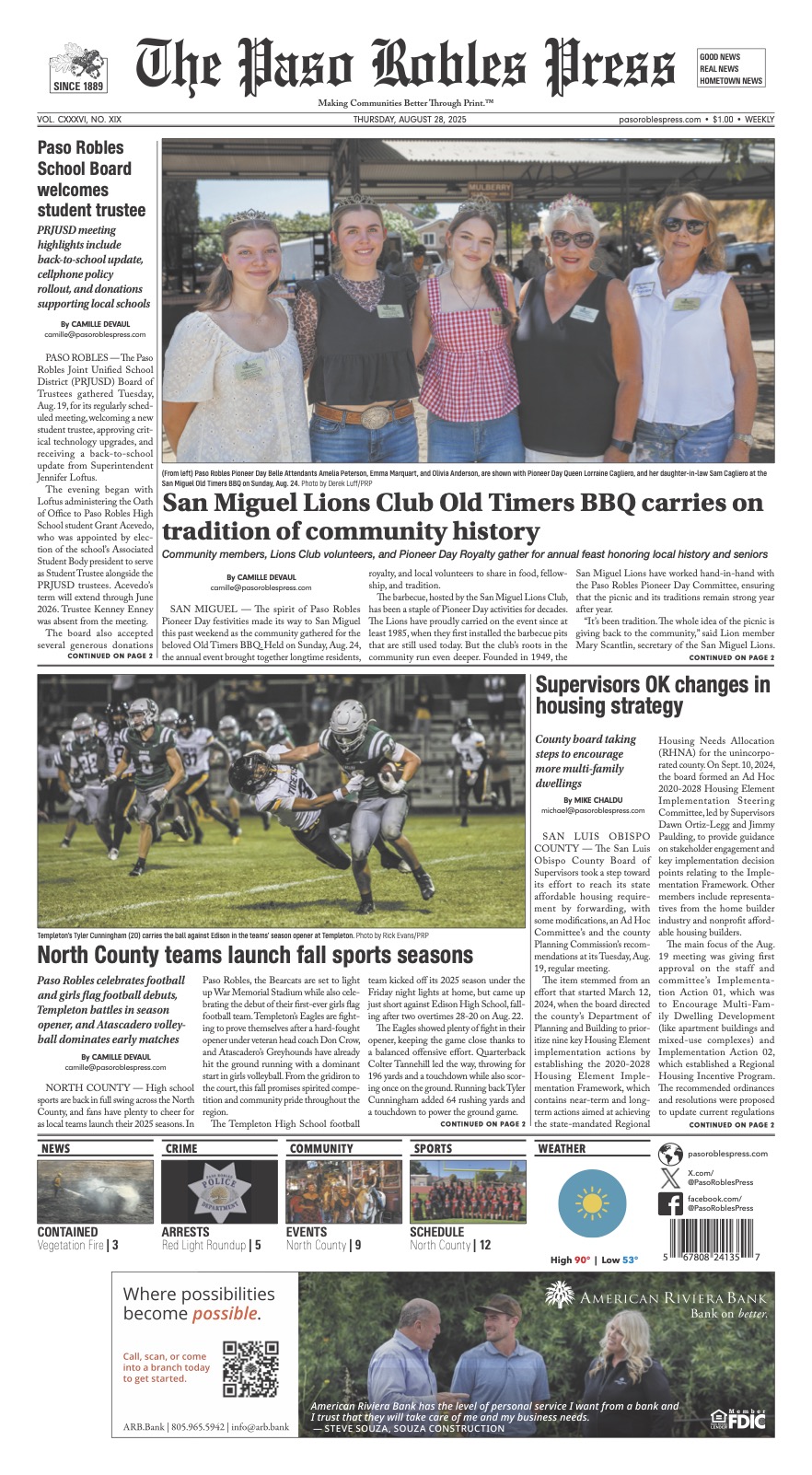California Air Resources Board will ban the sale of new diesel trucks and buses by 2036
By Caleb Hampton
CALIFORNIA — After a lengthy rulemaking process, California is set to phase out nearly all diesel trucks in the state over the next two decades.
Regulators voted unanimously on April 28 to approve a ban on medium and heavy-duty diesel trucks, including the big rigs that transport fresh agricultural products throughout the state.
The “first-in-the-world” rule from the California Air Resources Board will ban the sale of new diesel trucks and buses by 2036 and require that most diesel trucks operating in the state are phased out by 2042.
The rule applies to all companies with 50 or more vehicles or at least $50 million in annual revenues and to all federal agencies, such as the U.S. Postal Service. Emergency vehicles such as ambulances and fire trucks are exempt.
Environmental groups and regulators celebrated the landmark policy, saying it will help combat climate change and curb air pollution. Trucking and agricultural sectors have expressed worries about the logistics of implementing the rule.
Diesel trucks and buses represent around 3 percent of vehicles registered in California and produce more than half its smog-forming gases and carcinogenic pollutants, according to the board.
“This is an absolutely transformative rule to clean our air and mitigate climate change,” said CARB Chair Liane Randolph. “We all know there’s a lot of challenges, but those challenges aren’t going to be tackled unless we move forward.”
Leaders in the trucking and agricultural sectors raised concerns that the rule, called Advanced Clean Fleets, could have unintended consequences if infrastructure required to implement it is not built in time. Those worries center around the readiness of the electrical grid, vehicle technology and the charging infrastructure for zero-emission vehicles.
“We are extremely concerned that the proposed ACF rule will be unworkable in the real world and could result in compromising the delivery of essential goods and services to Californians,” a coalition of commercial, transportation, and agricultural organizations, including the California Farm Bureau, wrote last year in a letter to the air resources board.
While the rule will impact trucking companies first, it will also affect farmers who rely on trucks to transport livestock, produce, and agricultural products and equipment across the state. Some have warned that delays caused by charging issues could threaten animal safety or the timely delivery of fresh products.
“Livestock, fruits, and vegetables need to be transported in a timely manner to ensure food and animal safety,” Katie Little, policy advocate for the California Farm Bureau, said at a hearing for the rule. “The time required to charge these vehicles, in addition to the time needed to travel to these charging facilities, could jeopardize food security and availability.”
California has budgeted more than $5 billion for the transition to cleaner trucks and buses — much of which still lies ahead. The rule is expected to impact 1.8 million vehicles. There are currently fewer than 2,000 zero-emission medium-duty and heavy-duty vehicles on California roads, most of them buses.
Last week, in the heart of the San Joaquin Valley farming region, the Fresno Bee editorial board applauded the rule’s environmental goals but cautioned that it enforces an overly aggressive timeline for phasing out diesel-powered vehicles.
Under the rule, drayage truck fleets, which haul agricultural products and other cargo from rural parts of California to coastal ports, must fully convert to zero-emission vehicles by 2035. That is seven years before most other sectors of the trucking industry.
“The requirements for drayage fleets are unreasonably aggressive,” the editorial board wrote. “Moving the drayage deadline to 2042, consistent with other trucking fleets, would not only help these haulers, but their customers, chief among them Central Valley farmers.”
Meanwhile, farmers and other professionals in the agricultural sector have raised concerns about the weight of the batteries needed to power electric big rigs.
Federal regulations limit the weight of a truck and its cargo to 80,000. According to manufacturers, batteries for electric heavy-duty trucks can weigh up to 16,000 pounds, dramatically reducing the amount of cargo each truck can carry. That would create a need for more trucks at a time when there is already a shortage of drivers.
Clayton Lynch, sales and marketing representative for Agra Marketing, a Butte County company that ships agricultural bioproducts such as compost, manure, and biochar to farms across the state, said the elimination of diesel trucks could undercut a separate effort California is making to address climate change.
The state government has incentivized sustainable farming practices through grants such as the Healthy Soils Program, which depend on farms being able to purchase affordable soil amendments.
“The value of the products themselves is very low, so the predominant cost is associated with transportation,” Lynch said.
Any markup in shipping costs — a likely outcome of sacrificing so much cargo capacity for a huge battery, Lynch reasoned — would be passed on to farm customers and ultimately to consumers at grocery stores.
For products such as compost that are low cost and heavy — the primary cost of which is related to its transport — the increased cost of shipping would be felt the most.
“It’s a huge concern,” Lynch said. “It would raise the cost exponentially for all of these products that a lot of people who are environmentally conscientious are usually very excited to utilize.”
Caleb Hampton is an assistant editor of Ag Alert. He may be contacted at champton@cfbf.com.

